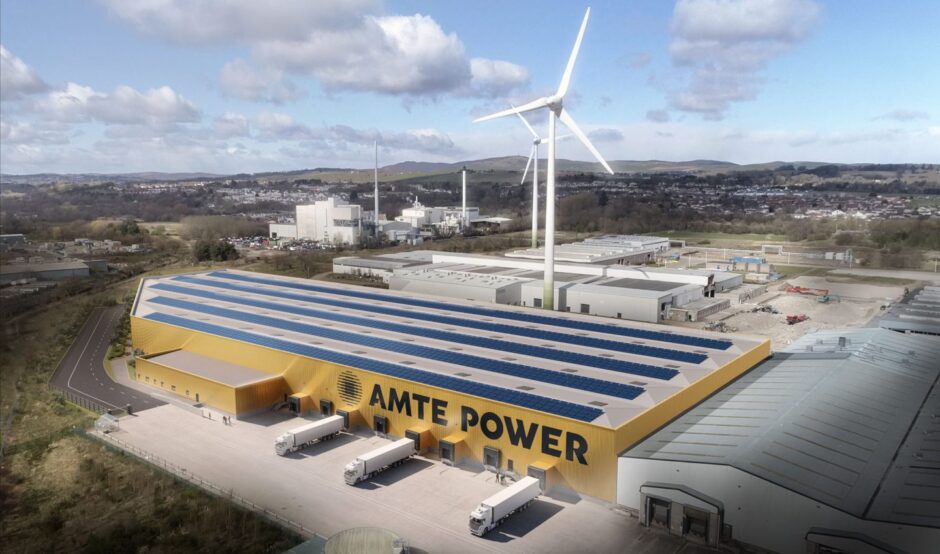
A few weeks ago, Holyrood Sources – a podcast producer – held a live meeting in Aberdeen with three politicians and some 300 people from the energy sector.
The aim was to discuss the results of a poll which, in broad terms, suggested a high level of support for indigenous oil and gas production rather than imports, and for offshore wind. Needless to say, the issue of energy transition was central to the conversation.
I watched the video. It was an interesting event, and the quality of banter was first class. However, even better was the podcast that followed a week later in which they tried to analyse what was said.
In my opinion, Andy Maciver – one of the three podcasters involved – hit the nail on the head when he said: “The word potential got used a lot last week … the problem with potential is that you can’t make a living on it and at some point you have to stop talking about potential and start getting this done.” He’s referring to the energy transition of course.
In fact, “potential” is one of the words most often used in Scotland when discussing energy transition and most other sectors as well for that matter.
We used it often back in the day when the oil and gas industry kicked off. Yet, ten years ago, I wrote an article in which I quoted Professor Brian Ashcroft of Strathclyde University who said then that around 70% of all oil and gas industry post-tax profits are remitted abroad.
Ashcroft said this “reflects high degree of foreign ownership.” I’m not sure anything has changed. We still seem happy to let others exploit Scotland’s potential and its markets.
A classic example arose recently. The Highlands-based battery manufacturer AMTE Power was put into administration following its failure to raise enough funds to build a factory in Dundee where it would have made the latest generation of sodium-ion batteries.
According to a study by CNBC, the market will be worth $11bn by 2033. It’s now been bought by a Dutch start-up also making batteries. So that’s goodbye to Scotland’s battery-related potential.
Where were Scotland’s supposedly renowned financial sector, Scottish Enterprise, and the Scottish National Investment Bank? Here was a chance to build an export market in an important emerging market and we blew it. Bravo! But can we moan about it when we’re the ones shooting ourselves in the foot?
I simply don’t believe we’re really making any serious attempts to achieve a “just transition” and I say that because whilst I’m constantly reading about new technology developments and projects in other countries but I rarely hear of any here in Scotland, let alone the North East.
Where, for example, is the work going on to develop alternatives to plastic or feedstock for pharmaceuticals? What about alternate fuels? Biogas replacements for LPG?
Cranfield Aerospace Solutions in England is building ten hydrogen propulsion conversion kits for export to a US carrier and working with Loganair on converting one of their aircraft. Who in Scotland is doing anything like this?
The Italians are building a €100 million green hydrogen refuelling infrastructure for recreational boating.
There’s a similar Norwegian project aimed more at commercial shipping. In Aberdeen, there are now doubts emerging over whether a proposed hydrogen hub will actually be built.
Norway is also in the process of developing an entire hydrogen and ammonia maritime value chain.
Now I could double the size of this article by quoting other examples of developments elsewhere and right across the renewables sector, all of which are generating jobs and helping to grow their economies.
They’re all examples of countries that have stopped just talking about potential and made things happen.
Our failure to create those new companies in not just energy production technology such as wind turbine or electrolyser manufacturing but developing and making new energy applications such as electric drive trains, energy storage, fuel cells and so on and so forth is down to us.
We keep claiming the oil and gas sector is a huge repository for all the skills we need to create a just transition, so maybe it’s about time we proved it.
If the Labour government does increase the windfall tax and we do lose thousands of jobs with no prospect of replacing them, then that’s as much our fault as it will be the politicians for our failure to react early enough.
In 2028, the Swiss engineer Bertrand Piccard intends to fly around the world in a green hydrogen-powered aircraft. No stops and no emissions.
I wish we had this man’s vision and ambition, but instead, we’re getting an Energy Transition Zone. It’s pathetic. Time we got a grip and, as Andy said, getting this done.
Recommended for you
